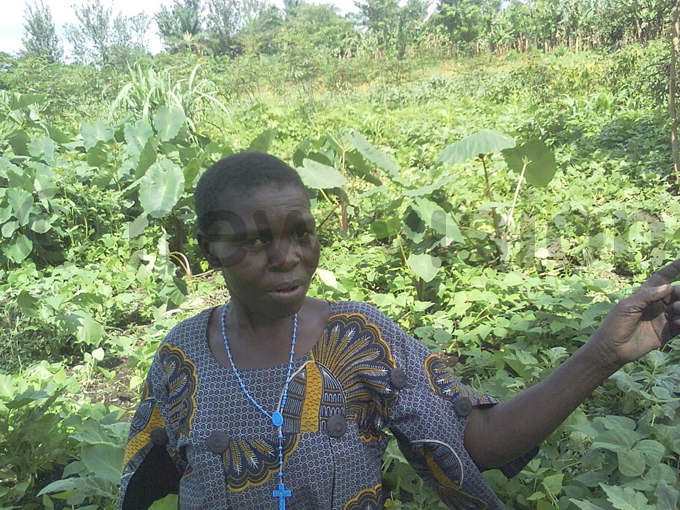Kasese farmers embrace new mini irrigation schemes
May 31, 2016
Local farmers said the project is enhancing food security

Farmers in Munkunyu and Muhokya sub-counties, in Kasese district can now grow their crops all year round after two irrigation schemes were set up in the area.
Two mini irrigation schemes were constructed in two sub-counties as a part of a project the district local government is implementing to boost agriculture and food security in Kasese. So far the livelihoods of more than 4,700 households have improved courtesy of the two irrigation schemes.
During a recent visit by Kasese district officials at one of the irrigation schemes in Kanyampara, local farmers said the project is enhancing food security.
"The project has helped us grow food crops throughout the year both for home consumption and sale, which has increased food production in the area where the water channels pass," said William Baluku, the representative of the farmers.
Richard Bomera, the chairperson of the district council committee for social services, commended the projects and advised the community to make use of the facility to ensure that their households are food secure.
"As a district we have committed to constructing a mini irrigation scheme every financial year because we have the water sources we need to improve the production of food," said Bomera.
However, the increased crop production following the construction of the irrigation schemes, may not yield the expected results if the road network is not improved.
Grace Masika, another farmer in Kanyampara, however, asked the district local government to open up roads to the rural areas to ease communication and marketing of their farm produce.
Most of the roads in the rural areas of Kasese are impassable, making it difficult for motor vehicles to access them.
How the schemes will work
The 340-acre project initiated by Kasese district local government is funded by the central government through the Rwenzori Luwero programme and the Belgium Development Co-operation.
 Officials touring Kanyampara irrigation scheme. Photo by Wilson Asiimwe
Officials touring Kanyampara irrigation scheme. Photo by Wilson Asiimwe
Alfred Bwambale, one of the engineers overseeing the project of Kanyampara mini irrigation scheme, said the system which is nearing completion, although framers are already benefitting from it.
Bwambale explained that the water would be pumped to the overhead storage tanks. Each of the five tanks has a capacity of 6,000 litres.
From the tanks, the water is then channeled to the gardens by gravitation.
Management of the schemes
Bwambale said if the system is properly managed by the communities it has a lifespan of 10 years.
The community has chosen leaders who will be responsible for clearing the water channels of bush and ensuring that channels are clear. He said that they have trained the people who will be responsible for maintaining the scheme.
"We are encouraging farmers to grow mainly vegetables and other crops that mature in less than eight months because of the level of the waters," said Bwambale. Such crops include tomatoes, eggplants, onions, cabbages and carrots.
He added that the water level is too low to support crops that require a lot of water.
Apart from the vegetables Kasese is also famous for the production of cash crops such as cotton and coffee.
 Masika Grace one of the beneficiaries in her beans garden. Photo by Wilson Asiimwe
Masika Grace one of the beneficiaries in her beans garden. Photo by Wilson Asiimwe
The mini irrigation schemes will boost the rehabilitated Mubuku irrigation scheme which also famous for the production of vegetables in the west.
Rehabilitation of Mubuku is estimated to have cost sh19b.
What others say
Fred Bwambale, another beneficiary
I lost more than 10 hectares of eggplants crop in a drought in 2012 and this had discouraged me from agriculture. However, with the setting up of the irrigation schemes, I'm now going to go back to agriculture. I hope my production will increase by 50% compared to what it was in 2012 when I was forced to quit farming after the drought.
Patrick Ndyanabo, a farmer in Kanyampara
The irrigation scheme will boost production in Kasese, which previously used to suffer from prolonged droughts that have caused a lot of losses. As farmers, we are also assured of producing food all year round without interruptions.
Jovia Masika, a farmer in Kayanja
The irrigation scheme will help to reduce on the effects of the flooding in the area during rainy season as all the water has been controlled. Previously we had a challenge of flooding whenever it rains but since the construction of the scheme water has been controlled.
